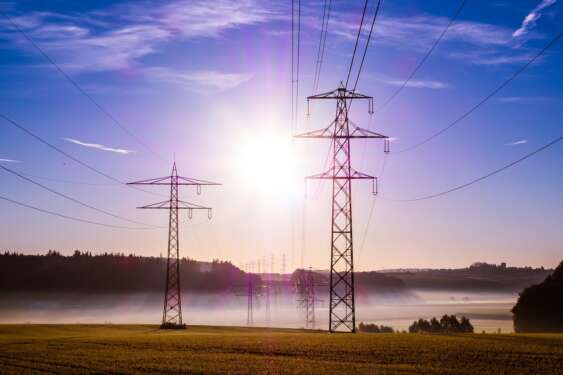The Energy sector has received substantial capital commitments. In the course of the continent’s growth, the sector has seen lucrative returns and enormous risks and losses. The energy sector’s main upside has been the increased economic growth and development witnessed on the continent.
The story has not been an absolute success, however, with some huge losses incurred. The government mainly monopolizes the energy sector in Africa as it provides a critical service to the economy. Failure of the sector could result in a catastrophic collapse of the economy across all fronts.
The impact of mergers in the Energy Sector
Operational cost-efficiency
South Africa has recently welcomed a major energy merger that is effective 1 April 2021. PetroSA, iGas, and Strategic Fuel Fund are set to become one entity called the South African National Petroleum Company. A deal has the potential to produce high-value returns for investors and substantial developments in both the economy and social sphere of the country and the continent.
An immediate gain from the merger is the cost advantage from shared resources such as labor and infrastructure. These three are in the same line of business and find it easier to blend. Operational costs are shared, with a combined approach to streamline research and development expenditure which is usually high.
Streamlined processes facilitate not only sharing of resources but also ensures the sustenance of under-performing but critical services. PetroSA is coming into the deal on the backdrop of incurring losses of R20 billion since 2014. Other notable losses arose from the entity’s Project Ikhwezi which had investments of $1.2 billion with insignificant gains from it. These financial resources are opportunity costs that were incurred. The funds could have been better utilized in developing other sectors such as health and education to better meet living standards in the country.
Other countries such as Zimbabwe and Swaziland depend on the country for energy sufficiency. As a result of high losses incurred, the burden is extended to the energy importer, which is not a positive move to promote development in the continent. An environment with high costs of doing business retards the continent from enjoying the advantages of its vast natural resources on the global front.
Promoting clean energy investments
There are increasing and tighter regulations in the energy sector, advocating for less use of fossils. An energy transition to the use of carbon-neutral fuels requires a collaborative and staggered approach to change. Various players involved in fossil and non-fossil fuels have to engage in strategic mergers. This gives room for new energy technologies and innovations to be adopted while allowing a smooth energy transition.
The French electricity utility ENGIE merged with its African consulate, a move aimed at fostering green growth on the continent. The deal will be advantageous to the investors due to the high demand market and the growth of economies on the continent.
A diversified energy mix would be essential for meeting energy demand efficiently and effectively. Mergers allow for the realization of this goal. In Nigeria, the primary source of power generation is natural gas. Considering that Africa is on a high growth trend, both in terms of the economy and population, there is a greater need for energy supply. The required infrastructure is too expensive and very complicated to keep up with marginal increments in growth trends.
Read also: Energy in Kenya: A constant battle for more!
Prevents collapse of the critical energy sector
Energy companies invest a lot of capital, provide critical economic services, and employ significant people in the economy. This sector is considered too big to fail and poses a significant systemic risk to African economies. These economies are primarily involved in primary and secondary production and rely heavily on the energy sector.
A typical example is Kenya which is not a profound oil producer, but most sectors rely on oil for energy. About a third of the energy mix is accounted for by fossil fuels, and thus any country’s growth prospects will fall along the same lines. A substantial shock to the energy industry will result in the collapse of the economy.
Social Impact
In the business environment, three key influential elements: legal, social, and political aspects, have to be considered. Mergers bring rejuvenation to underperforming companies in most instances.
The aftermath of mergers involves related social settlements such as massive job cuts that may occur due to streamlined activities.
For energy firms to benefit from economies of scale, digitizing processes will be vital in reducing operational costs. This downside to mergers is a significant concern as they continuously increase while the continent continues to record higher unemployment rates.
Litigation risks
The negative impacts of mergers in the energy sector also affect the respective parties in the deal. These may include financial partners, shareholders, and even regulatory authorities. Post-transaction litigation risks are common, and these arise when there are legal breaches by the parties involved or their stakeholders.
Most of the energy sector investors are from prosperous developed economies, and as such existing protectionism policies may come into play.
Other typical litigation risks include environmental policy breaches in relation to resource overexploitation as well as excessive pollution. The result for most of these litigations is incurring unplanned high legal fees and extremes such as the business being forced to close after infrastructure had been established.
Final word
As mergers and acquisitions are increasing in Africa, a cautious approach has to be taken by the respective governments. Protection of national sovereignty, sustainable exploitation of resources, and a balance between the capital and social motives by the corporate players.
Having considered a balanced view of mergers in Africa, mergers can help overcome some of the energy sector’s structural issues. The continent needs more capital injection to realize its Agenda 2063. Mergers can streamline and improve the use of capital in the industry charting a path towards the fulfillment of the UN’s SDG 7 on affordable and sustainable energy.
Read also: Effects of liberalised trade on Africa’s energy industry
